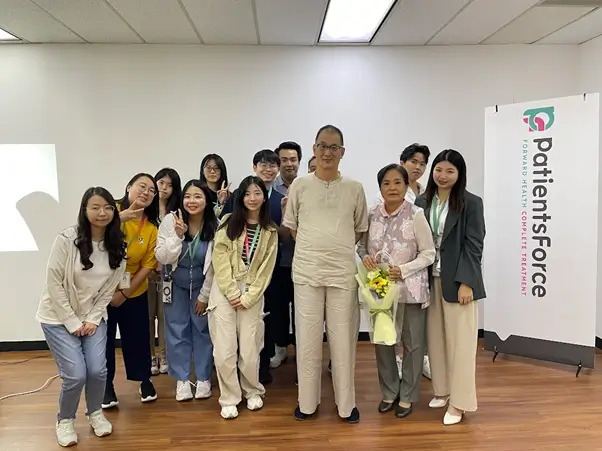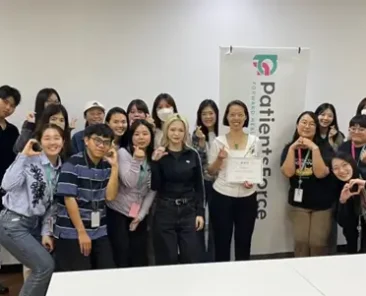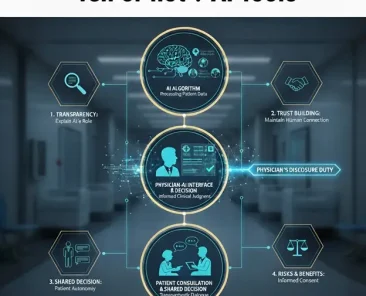Treatment is like running a long distance: challenge after challenge
From the first surgery to remove the tumor, the disease seems to be racing against time. Over the years, he underwent multiple surgeries – traditional thoracotomy, robotic minimally invasive surgery, and even a major thoracotomy due to intraoperative blood vessel damage caused by heavy bleeding, forcing him to switch to a thoracotomy. Every operation is accompanied by great pain and risks, but Mr. Zeng always insists on getting out of bed and walking around the next day after surgery.
In addition to surgical treatment, he was impressed by the indescribable side effects of a certain drug, and when he was on a business trip in Beijing, he had a momentary idea of suicide due to the depressive symptoms caused by the drug. Later, after being explained by the doctor, I understood that it was one of the side effects of the drug. Even so, he never stopped. As the disease progressed, he also experienced brain metastases, relying on steroids to urgently control intracranial pressure, supplemented by oral targeted drugs and stereoscopic radiation therapy (Gamma Knife) to shrink the lesion and maintain stability.
“In the past 18 years, few people have been able to continue working like me, who has had so many surgeries.” He said with a smile.
The company of family is the strongest backing
Companionship is the most constant keyword on this road. Mrs. Zeng herself has a medical background and has become her husband’s “project manager”: arranging registration, preparing medical records, discussing treatment plans with doctors, and even tracking and communicating on behalf of him when he is not reading the examination report. She said frankly: “It’s like I’m a patient, but that’s the role my family can give.”
And the daughter is the spiritual pillar of the father. Nicknamed “Careful Liver” since he was a child, even if he goes to work in the United States, he will return to Taiwan for two months every year to accompany his father and make cross-border calls every day. She always reminded her mother: “Dad is already great, and if he can eat it, it is the greatest happiness.” This family affection allows Mr. Zeng to continue to move forward at his lowest ebb.
The importance of financial preparedness and patient support programs
Fighting cancer is not only a physical and mental torment, but also a financial test. A da Vinci surgery and a Gamma Knife treatment can cost hundreds of thousands to millions of dollars. Mr. Zeng admitted that he had a bad impression of insurance in his early years, but his family purchased medical insurance by chance, “This step is the right choice for a mistake. If it weren’t for this protection, the cost of treatment alone would have crushed the family.”
In addition to insurance, he also benefits from the Patient Support Program (PSP) between pharmaceutical companies and hospitals. The program provides dedicated health education, medication tracking, and psychological support, which not only reduces the financial burden but also allows the entire family to have professional resources to rely on. “The sense of stability that allows patients to receive treatment with peace of mind is not to worry about financial matters.”
Prove “don’t give up” with your life
Today, the 68-year-old Mr. Zeng is slowly fading out of work, and when it comes to the future, he seizes every opportunity to get along with his family and live a normal life every day. He said: “I am not a model patient because the doctor always tells me to rest more, but I would rather continue to work. For me, having a goal and being accompanied is the best treatment.”
The eighteen-year journey against cancer has not only written a medical record, but also a life education. Mr. Zeng’s story reminds us that in the face of illness, professional medical care, family support, and financial preparation are indispensable. And what really supports it is the belief that does not give up.
Affirm PatientsForce services
Due to the use of specific self-funded treatments, Mr. Tsang mentioned more than once that while professional medical care is important, the “details of the service” can often determine the feelings of patients and their families in difficult situations. He particularly praised PatientsForce’s customer service team, which showed reassuring efficiency and attitude whether it was by phone, email, or follow-up. “Your email replies quickly, as soon as the phone calls, no one will wait, someone will answer in three calls, and clearly report the company name and name. He recalled his past requirements in business operations, and even asked employees to follow suit (Mrs. Zeng shook her head while listening and said that this was really too strict…). It is this professionalism of “not letting the other person wait” that makes patients feel respected and valued. For patients who travel to and from the hospital for a long time and have cumbersome treatments, being able to get a response in the first time is not only a matter of efficiency, but also a kind of accumulation of trust.
Mr. Zeng admitted that the service level of PatientsForce even exceeded the requirements of the companies he led in the past, “If it were in my company, such customer service standards would be exemplary.” For a patient who has undergone countless surgeries, chemotherapy and radiation therapy, immediate and accurate assistance can help meet the needs of the client.




